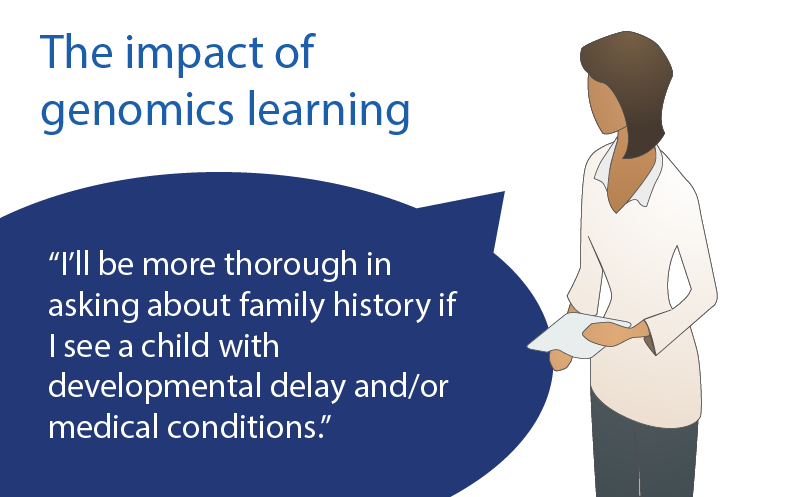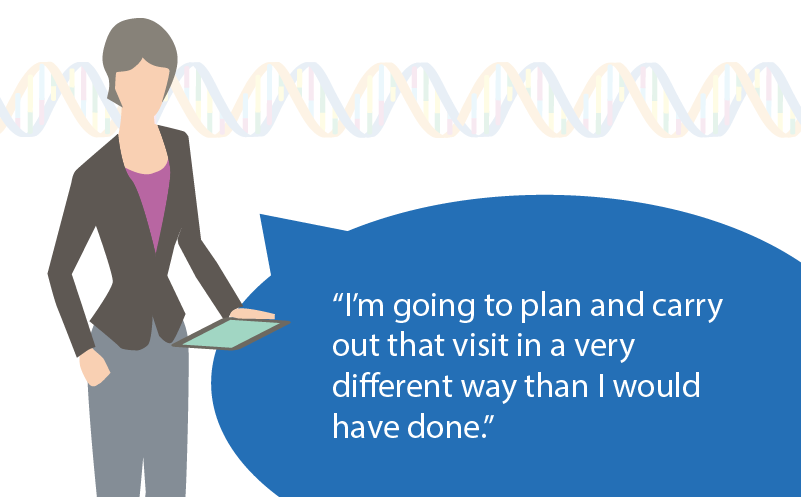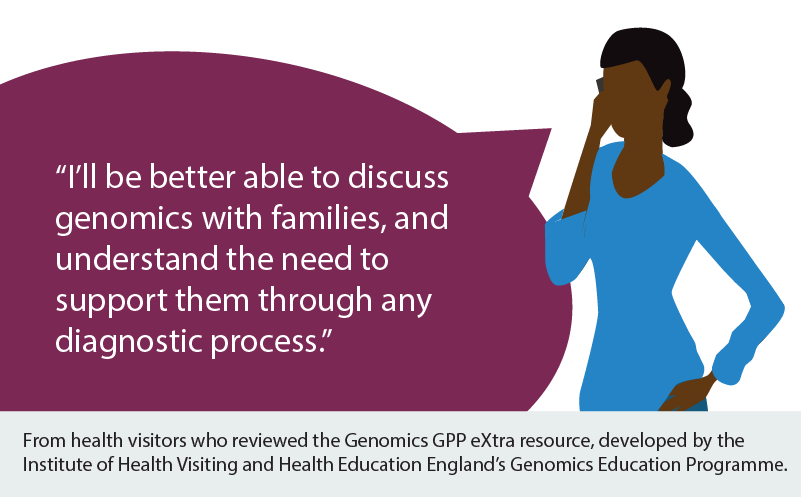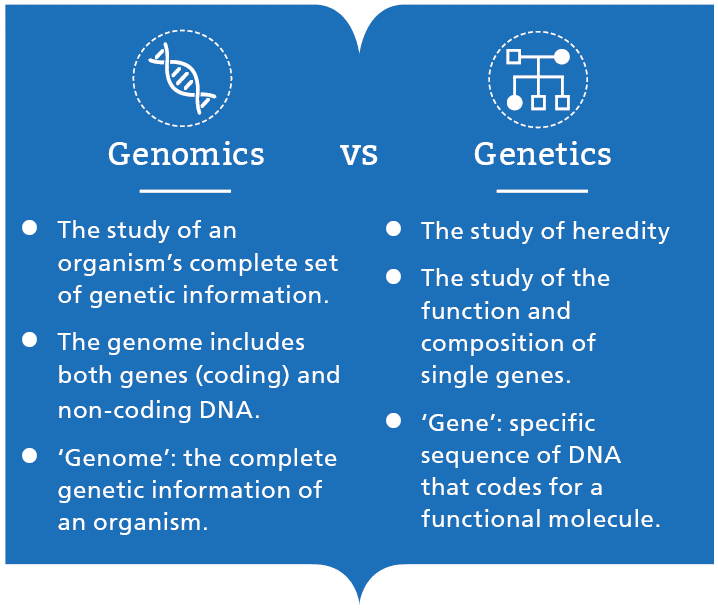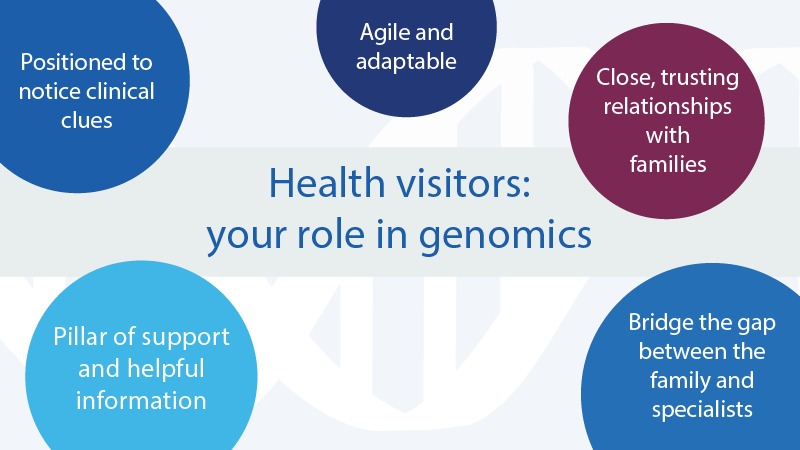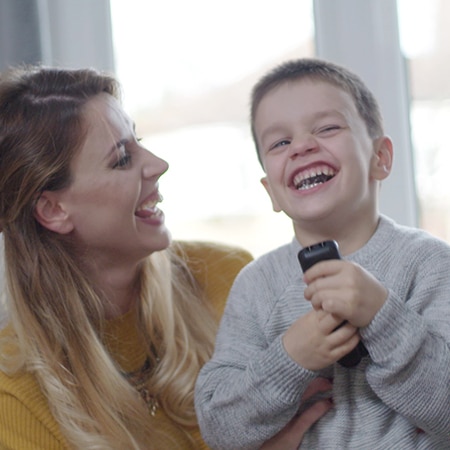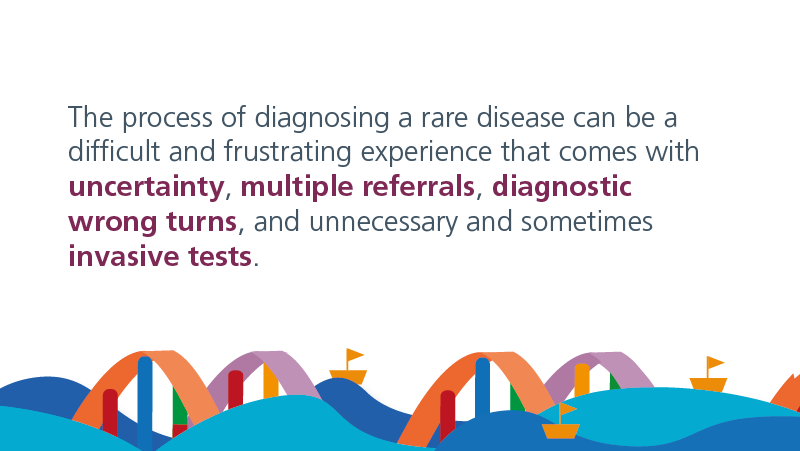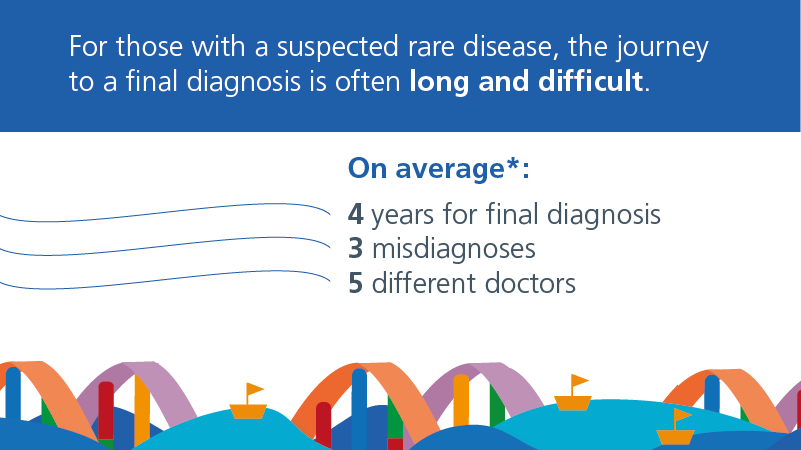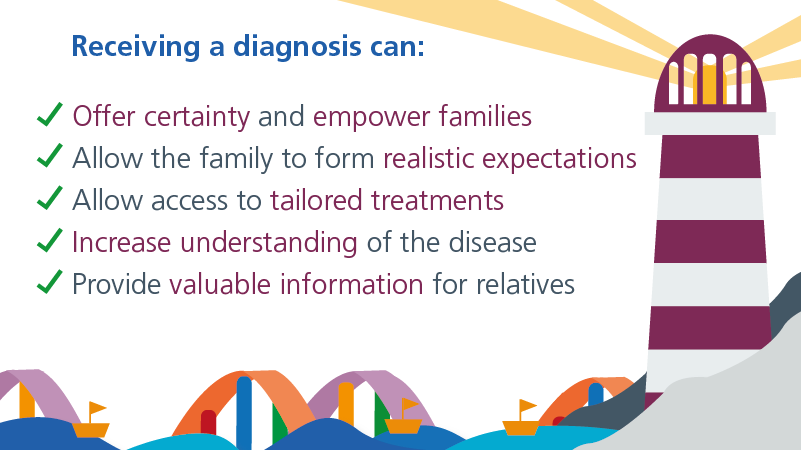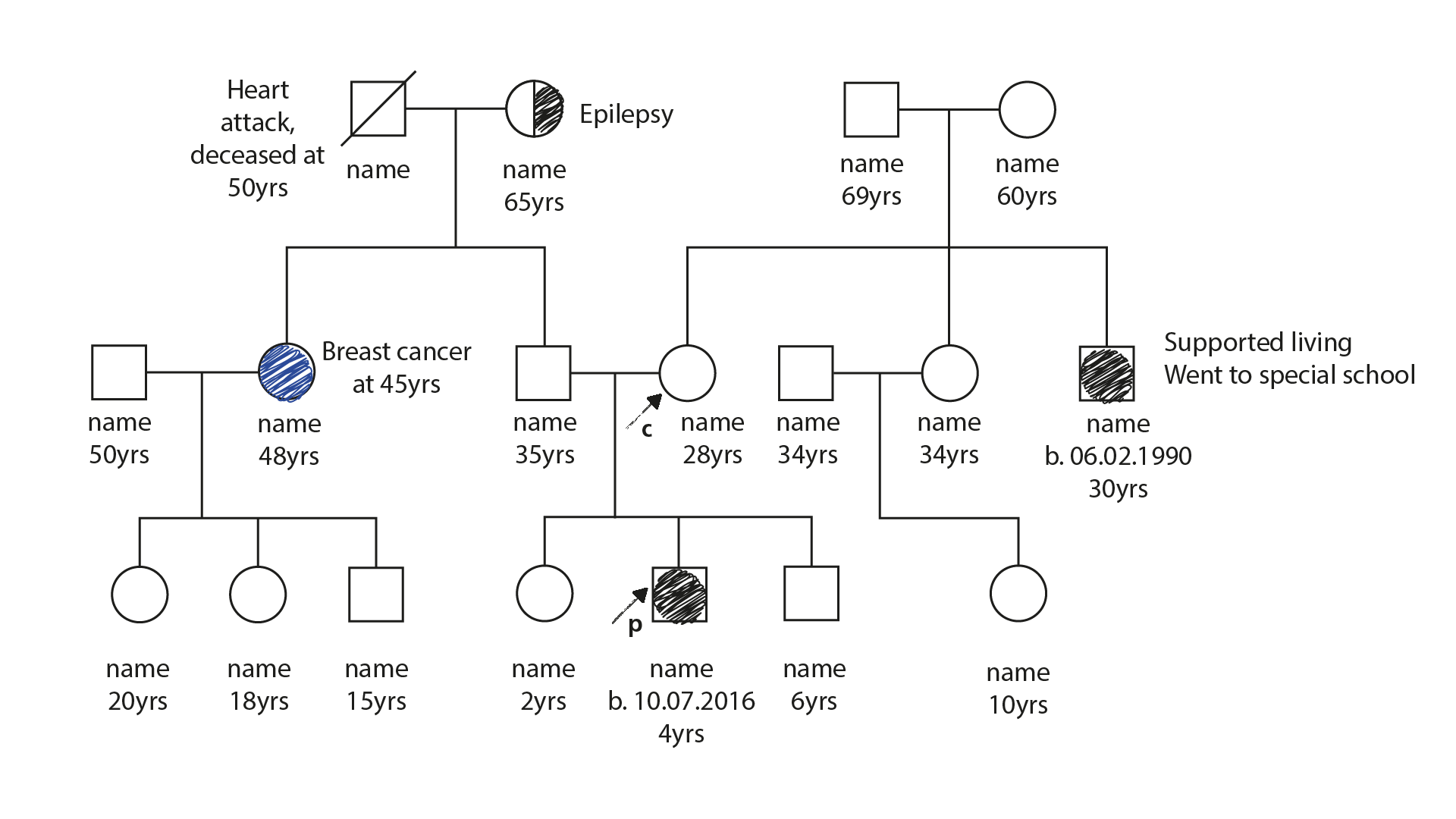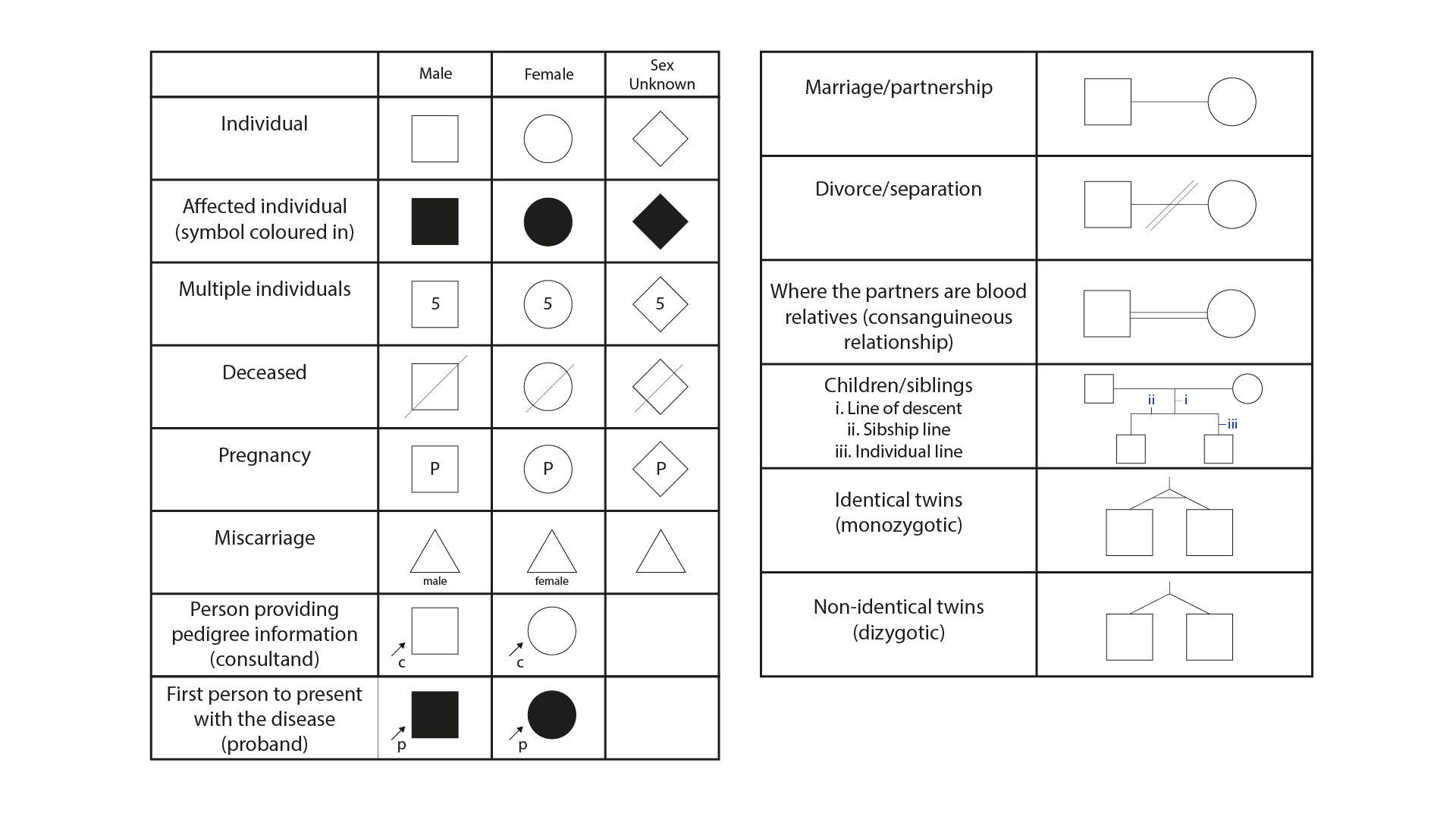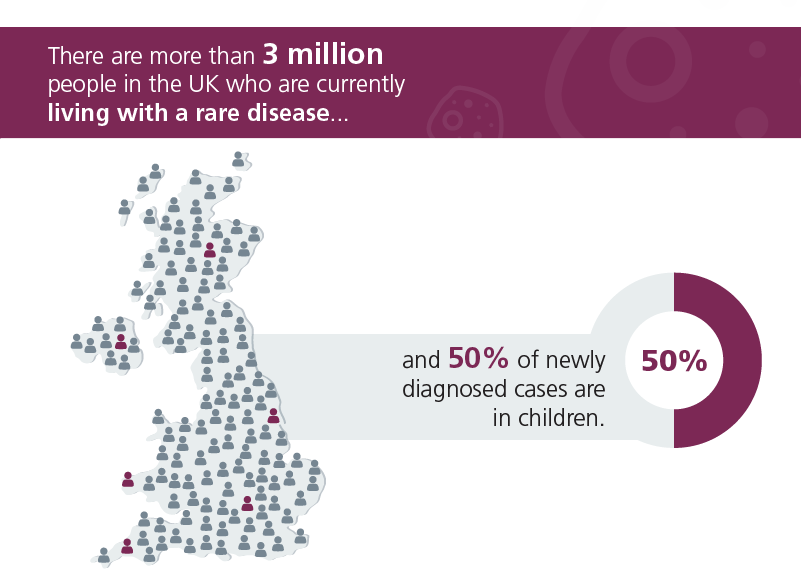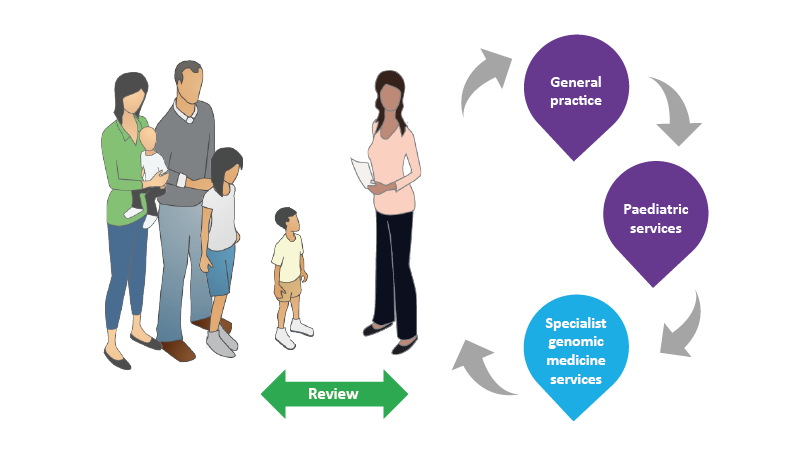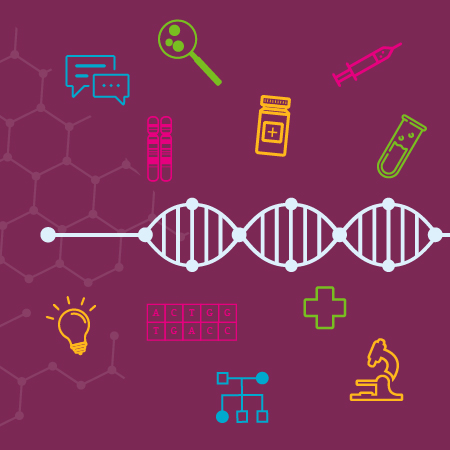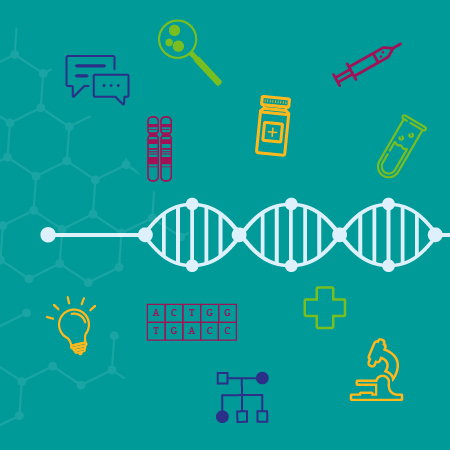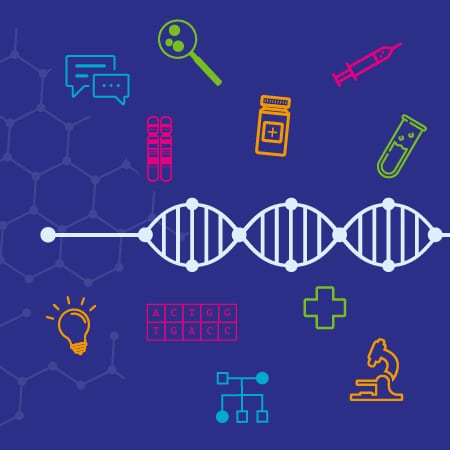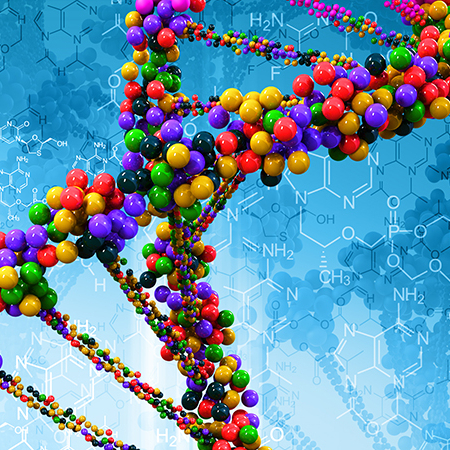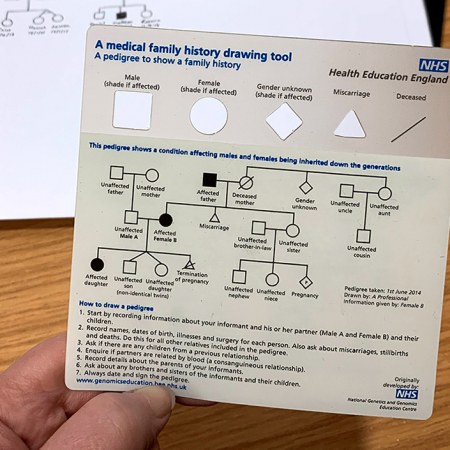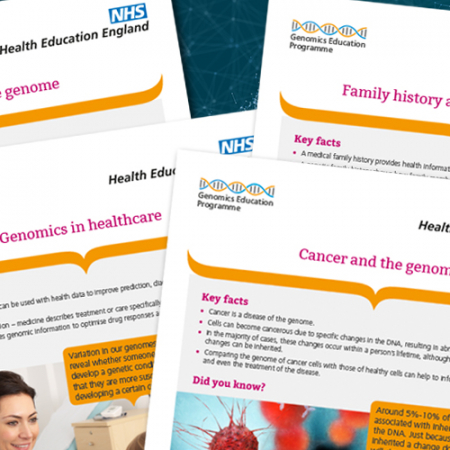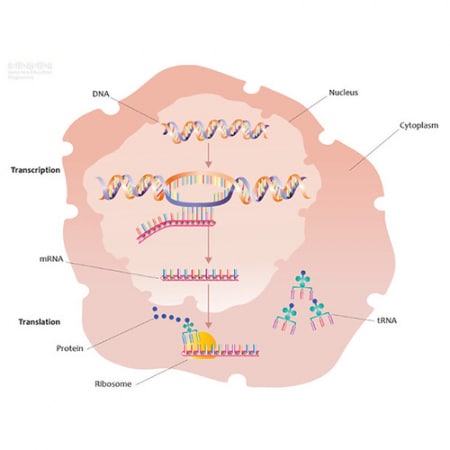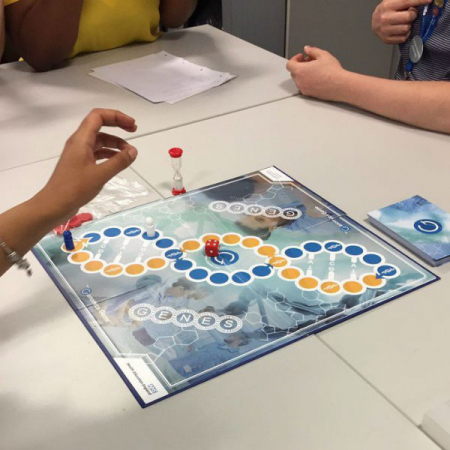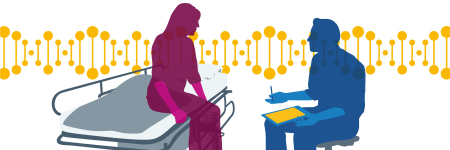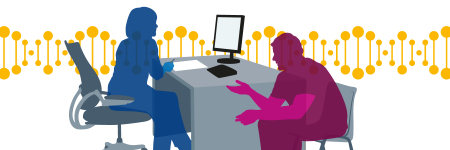Introduction
Note: This webpage was developed in collaboration with the Institute of Health Visiting.
Genomics may be a new term for many health visitors, but it is becoming increasingly relevant to your practice and can be a powerful addition to your toolkit for supporting families.
On this page, you can find educational resources, useful information, and links for further learning to help you build your knowledge and get started on – or continue – your genomics journey.
Look at the images to hear from health visitors as they explain the impact their genomics learning has made. When you’re ready, keep reading below as we tackle some common questions.
What do I need to know?
Genomics can be complex, but some of the most important things you need to know are simple to learn. Click on the different questions to find the answers to some common questions.
What is genomics?
Although you may be familiar with ‘genetics’, especially in relation to certain tests, the concept of genomics is less well understood.
Some types of tests are indeed genetic, because they test for a condition by looking for a variation in a specific gene.
Genomics, however, describes how we sequence, analyse, interpret and act on information from the whole genome, or any part of it. The National Genomic Test Directory refers to all tests as ‘genomic’ and we will do the same throughout this resource.
Take a look at our handy infographic below to learn more about the differences between the two terms.
Why me?
Health visitors are in a unique position to make a big impact on families’ lives because of the things they see and hear that other healthcare professionals might not.
Look at the diagram for some of the qualities that you embody to help families through a genomics journey.
By using your qualities and skills as a health visitor and learning about genomics, you can make all the difference: from being equipped to make a timely referral to genomic services, to being a beacon of support for families on their diagnostic odyssey.
Why now?
Planning for the future
With genomics formally supported by the NHS Long Term Plan, it is set to develop rapidly in the coming years – with more genomic tests becoming available to more people, and more public awareness around rare disease.
If you want somewhere to start, we recommend this introduction to genomics for health visitors, produced in collaboration with the iHV.
Newborn genome sequencing
Health visitors should be aware of the Newborn Genomes Programme’s Generation Study – a research study run by Genomics England in partnership with the NHS. This will explore the potential of whole genome sequencing of newborns to find and treat rare conditions early. This could have a huge impact on the number of children diagnosed with genetic conditions, which may affect their health while in your care.
The study has been running since mid-2023 and will sequence up to 100,000 babies’ genomes, so there’s no better time to learn more about how genomic testing can affect your practice.
You can learn more about the Newborn Genomes Programme on the Genomics England website.
I want to learn more; are there any resources available?
Yes, there are many resources available to help you better understand and apply genomics in your practice, including this webpage: Here are some to get you started:
Guided resources: for step-by-step learning
- Don’t know where to start? Try our genomics learning journey and start off from where you feel comfortable.
- For a holistic look at genomics in health visiting, we recommend Understanding Genomics: GPP eXtra, produced in collaboration with the iHV. These five documents are designed to build your knowledge up from the basics and provide guidance for how you can apply what you have learned in practice.
- Three genomics webinars, hosted by the iHV and featuring a variety of guest speakers, are also available to answer some key genomics questions posed by health visitors.
- If you want to learn more about a specific genomics topic, or want to expand your knowledge of genomics in general, our Genomics 101 series is available now through the elearning for healthcare platform. We recommend starting with this course: Genomics in Healthcare.
Targeted resources: for something specific
Family history
- We have many resources available to help you with taking a family history. Try our Genomics 101 course or our taking a family history webpage, which contains a reference genetic pedigree that you can save or download as well as FAQs and signposting to other resources.
Rare disease
- Rare diseases are individually rare but, when taken together, they are far more common, affecting around 1-in-17 people in the UK. There are many sources of information available, but our Rare Disease Education Hub is a great place to start, with helpful resources and links for clinicians and patients.
Genomic testing
- Genomic testing is one of the most rapidly advancing areas of genomics, and can be difficult to understand. Remember, you don’t need to know everything, but it’s helpful to understand some tests that will affect your families, like the newborn blood spot screening test, which tests for nine serious and rare conditions shortly after a baby is born. More information on genomic testing and the NHS Genomic Medicine Service is available here, if you want to learn more.
Other resources
The impact of genomics for families
Genomics is a necessary and developing part of healthcare, and it can provide life-changing results for families. It is, however, important to remember that it doesn’t always provide the answers that we were expecting, and sometimes leaves us without an answer at all.
Watch these films to hear two families’ experiences of genomic testing and the difference it has made for them.



